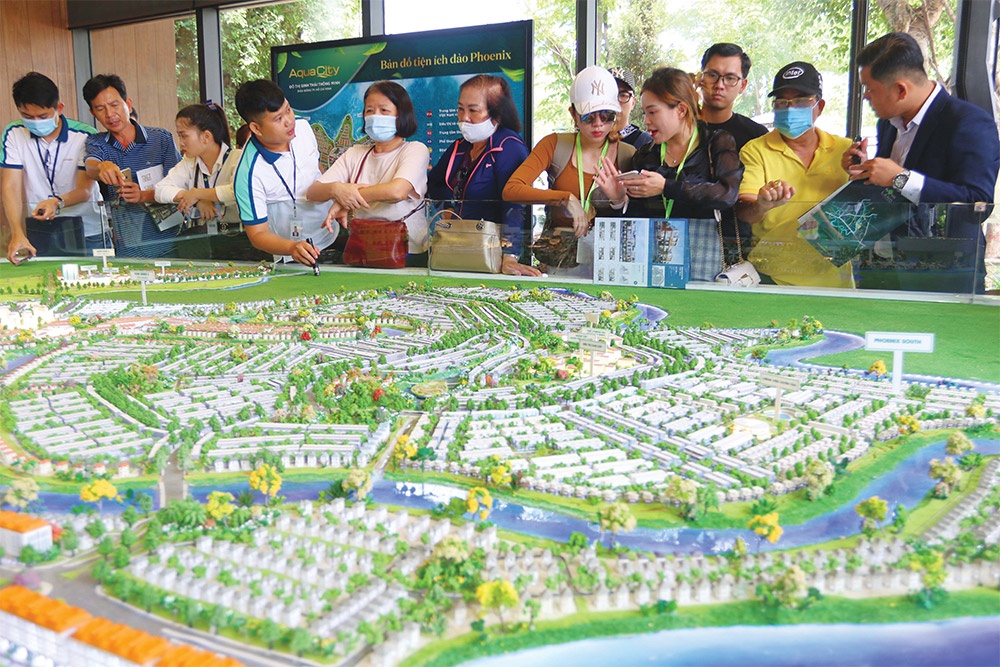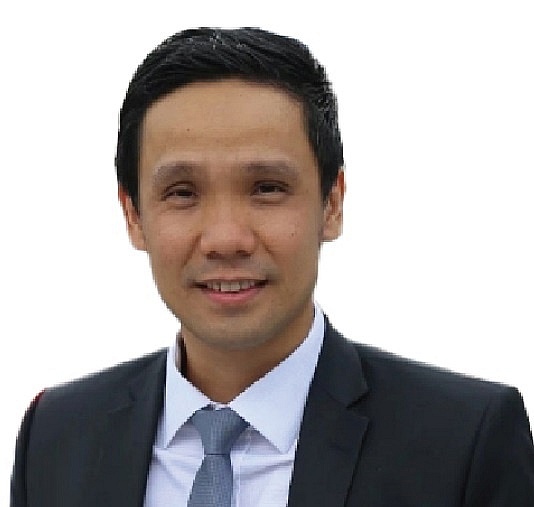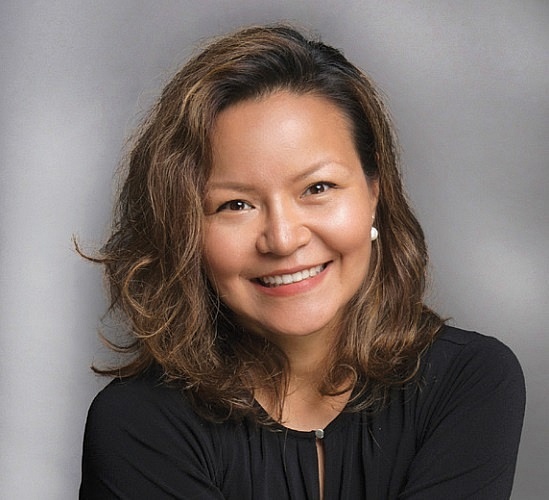More attention likely in housing ownership
 |
| More attention likely in housing ownership, photo Le Toan |
The new Law on Housing (LoH) and Law on Real Estate Business (LoREB) are set to come into effect in 2025, along with their respective implementing decrees and circulars, which are currently being drafted and will replace the current Law on Housing 2014 and Law on Real Estate Trading 2014.
These legislative changes are aimed at revitalising the real estate market and attracting increased foreign investment, following a period of instability.
There are key provisions concerning the ownership of houses by foreigners in Vietnam. Under the new LoH, eligible foreigners can acquire houses directly from other foreigners possessing properties in Vietnam, a right which was not expressly recognised under the current LoH.
Under the existing LoH, foreigners’ ownership rights can be reflected in the respective certificate of land use right, housing ownership, and other assets attached to land for houses acquired via investing in real estate projects, direct purchases with real estate project developers, and gifts or inheritance.
Each developer can only allocate a specific number of its housing products in each project to foreign buyers. This limitation encompasses a maximum of 30 per cent for apartments and a maximum of 250 landed houses within a commune/ward boundary.
Thus, if a foreigner wishes to acquire a house in a real estate project from a fellow foreigner or a local individual, the notary office which notarises the transfer agreement often requires pre-approval or confirmation from the developers acknowledging that such transfer is within such quota limit. A limited number of notary offices still proceed to notarise foreigner-to-foreigner transfer, though this is more of a practice note than legislatively allowed. These factors have led to complex procedures in the secondary market for housing products.
The new LoH explicitly recognises that foreigners can sell and buy homes to and from fellow foreigners. This clear legal framework governing the secondary market is anticipated to draw attention from foreign investors towards the housing market, particularly those who seek investment opportunities without the intention of owning properties in Vietnam.
Explicit regulations
The current LoREB does not regulate on any deposit amount for off-plan housing purchase, whereas the new law regulates that the first deposit shall not exceed 5 per cent of the purchase price of such housing and only be collected after the project is granted written approval and the sale permit. This is a blanket clause that applies to foreign and local purchasers alike.
As a practical note, since the current LoREB does not regulate the collection of deposits, deposits of off-plan housing are often collected at a maximum of 30 per cent and before such housing is qualified for a sale permit. Other than the deposit requirement, other regulations on money collection remain the same under the new LoREB.
While we acknowledge that the new deposit mechanism imposes stricter conditions on the developers, particularly in managing funding for project development, we believe these regulations favour buyers. They serve as safeguards against unqualified developers, ensuring timely handover of houses and minimising the risk of misappropriation of funds. These factors contribute to establishing a transparent legal environment that assures foreigners in their decision to purchase and own housing in Vietnam.
Given that a developer will constantly be in need of mobilised capital before the sale permit is acquired, we will have to watch this space and see if new methods of money collections will be devised by developers, such as in the form of reservation agreement, or promise to buy agreement.
Under the current and new LoH alike, eligible foreigners may only acquire houses in areas which are not subject to national security and defence criteria, determined by the Ministry of Defence and the Ministry of Public Security. The new LoH further requires the government to provide detail guidelines on criteria of national defence areas, which allow the relevant ministry to produce such a list for publication.
Currently, since there are limited guidelines on determining these areas, the relevant ministries are unable to produce a list, which means hundreds of foreign investors are unable to recognise their ownership of housing on the relevant land use rights certificate. As a bandage solution to the issue under the current LoH, practice varies for different provinces authorities.
Hanoi strictly follows the regulations and issues a specific list of defence-sensitive areas, whereas locations like Haiphong opt to state such eligibility in the sale permit issued to specific projects. Meanwhile, Ho Chi Minh City has not published a comprehensive list of defence-sensitive areas, instead requiring developers to independently assess whether their projects meet the criteria and report to the city’s People’s Committee and Department of Construction. Upon approval from these authorities, developers can proceed to sell the housing to foreigners.
With the new LoH and guiding decree, we hope to see clear demarcation from the state on defence-sensitive areas, which will assist foreigners in determining the licensing requirements applied for issuance of land use rights certificates.
Renewals, gifts, and more
Under the current LoH, foreigners’ right to renew housing tenure is subject to authority discretion. Meanwhile, the new LoH explicitly states that foreigners may extend their housing ownership for a maximum 50 years. Whilst the change is nominal, we anticipate it will open the door to specific guidelines on extension procedures and criteria in supplementing decrees.
The new LoH clarifies the rights and procedures of settlement where foreigners are gifted or inherit a house but are not eligible to be granted a land use rights certificate. Eligible foreigners will be issued a certificate, whereas ineligible ones can authorise another individual to sell the house to eligible individuals and receive the transfer price of such. This point is silent under the current LoH.
Eligible foreigners are those that qualify for a set of requirements under the current LoH supplementing decree and under other conditions, such as being allowed to enter Vietnam.
During the travel bans through the recent pandemic, we observed difficulties in foreigners receiving inheritance. There were also no guidelines to authorise Vietnamese individuals to sell such properties on their behalf.
With the new LoH, we anticipate an increased confidence for individual foreigners to invest in Vietnam.
Meanwhile, the new LoREB distinguishes between a Vietnamese person with dual citizenship and an overseas Vietnamese person holding only a foreign passport. Particularly, Vietnamese individuals with dual citizenship have the right to purchase houses for sale, lease, or lease-purchase, whereas this right is not extended to overseas Vietnamese holding foreign passports.
However, investors should attempt to stay updated with the latest developments in Vietnam and seek case-specific advice from qualified legal professionals for investment opportunities.
| Thang Vo, director of Consulting Services and Project Development DKRA Group
With the new Law on Housing, Law on Real Estate Business, and Law on Land now approved, the real estate market is expected to have clearer changes, but not only for domestic buyers and investors but also for foreigners and Vietnamese people residing abroad. The new adjustments are mostly progressive, closely following reality and helping to protect the interests of buyers. For example, the regulations in the amended Law on Real Estate Business require payment via banks or investors can only collect no more than 5 per cent for projects formed in the future when eligible for sales. At the same time, the amended Law on Housing also more clearly defines land users who are Vietnamese residing abroad, including Vietnamese residing abroad who are Vietnamese citizens and those of Vietnamese origin residing abroad, along with specific and detailed regulations expanding land use rights and obligations, land management and use regimes for these two subjects. Article 20 of this law also clearly points out that foreign individuals’ right to own housing is for a maximum of 50 years from the date of issuance of the certificate and can be extended once for a period not exceeding 50 years, if any. This amendment has solved problems related to renewal, which was of concern to some non-nationals. According to Articles 41 and 46 of the recently approved amended Law on Land, Vietnamese origin residing abroad, economic organisations with foreign investment capital that are leased land by the state are allowed to sell attached assets to the land and the lease right in the lease contract. This is expected to help promote the secondary market, creating a more flexible mechanism for the market. Thereby, specifying the above regulations for foreigners and overseas Vietnamese will help increase market transparency, strengthen trust, and thereby open up investment capital sources from abroad poured into Vietnam and is a solid premise for sustainable development of the real estate market in the future. Duc Trinh, chairman, RealPlus JSC
When the purchase and sale transaction processes of real estate for foreigners are clearly guided, and areas containing projects eligible to sell are transparently announced, projects owners and developers can proactively plan to create suitable products and maximise the purchasing needs of foreign visitors. In addition, clearly defining the term of housing ownership and allowing extension up to 50 years helps foreigners feel more secure when buying real estate in Vietnam. More broadly, the market will expect to engage many investment capital sources from businesses and foreign investment funds participating in residential real estate projects, contributing to the excitement of product supply, as well as creating more internationalised real estate types. In the residential real estate market, mid-range and high-end real estate segments in central areas of major cities have attracted great attention and investment from foreign customers since the Housing Law and Real Estate Business were made effective in 2015. Apartment sale and transfer transactions between foreigners are quite exciting, although regulations and instructions on procedures for buying and selling and granting property rights certificates to foreigners still have ricks and limitations. Trang Bui, country head Cushman & Wakefield Vietnam
Some key changes in the new laws involve expanding and creating conditions for homeowners who are Vietnamese residing abroad and foreigners to extend the usage right once for up to 50 years. The new real estate business law stipulates the collection of a 5 per cent deposit for housing projects. However, according to our observation, this regulation does not have much impact on foreign investors because this ratio is not significant. Through discussions with foreign investors living and working in Vietnam, most investors have confidence in the development of the real estate market and are constantly looking for good opportunities. However, investors are still halting the decision-making process while waiting for this law to be promulgated. In addition, Vietnam is in the process of recruiting numerous highly skilled workers, of which foreigners from multinational corporations working in Vietnam are one of the main targets. And to be able to work well in that, foreign experts coming to our country need to be able to build a stable life. This means they should be able to buy a house and have long-term ownership, as well as other legal transaction rights on their assets. Meir Tlebalde, ceo, Sunwah Kirin Consulting Vietnam
We believe the foreign investors would recognise the recent Vietnam land legal reforms as a forward step from the government that enhances the real estate investment landscape. However, foreign investment continues to encounter significant challenges due to the unpredictable nature of the licensing process. The inconsistencies notably influence project licensing timelines, creating uncertainty. This unpredictability is particularly observed before the finalisation of the master planning, and is further stretched by the complexities of land compensation. These procedural hurdles delay project initiation and impact the confidence of investors in the feasibility of project completion schedules, thus further effecting the valuation and investment return. Moreover, securing project finance remains a challenging task for both international and local investors. The investors expect the Vietnamese government to prioritise the establishment of market-oriented, consistent regulations that will provide a more stable foundation for project financing. |
 | Clear real estate ownership rules to benefit all players Vietnam has gained remarkable achievements in economic development thanks to the promotion of international economic integration and active participation in free trade agreements. Doan Van Binh, vice president of the Vietnam Real Estate Association, analyses improving the law on real estate ownership by foreigners in the context of implementing such deals. |
 | Ownership tweaks show commitment to improve The amended Law on Credit Institutions was passed on January 18. Banking trainer and consultant Le Hoai An discussed the impact of this with VIR’s Nhue Man and the adjustment of the maximum institutional ownership capital in commercial banks. |
What the stars mean:
★ Poor ★ ★ Promising ★★★ Good ★★★★ Very good ★★★★★ Exceptional
Related Contents
Latest News
More News
- Construction firms poised for growth on public investment and capital market support (February 11, 2026 | 11:38)
- Mitsubishi acquires Thuan An 1 residential development from PDR (February 09, 2026 | 08:00)
- Frasers Property and GELEX Infrastructure propose new joint venture (February 07, 2026 | 15:00)
- Sun Group led consortium selected as investor for new urban area (February 06, 2026 | 15:20)
- Vietnam breaks into Top 10 countries and regions for LEED outside the US (February 05, 2026 | 17:56)
- Fairmont opens first Vietnam property in Hanoi (February 04, 2026 | 16:09)
- Real estate investment trusts pivotal for long-term success (February 02, 2026 | 11:09)
- Dong Nai experiences shifting expectations and new industrial cycle (January 28, 2026 | 09:00)
- An Phat 5 Industrial Park targets ESG-driven investors in Hai Phong (January 26, 2026 | 08:30)
- Decree opens incentives for green urban development (January 24, 2026 | 11:18)





 Tag:
Tag:





















 Mobile Version
Mobile Version